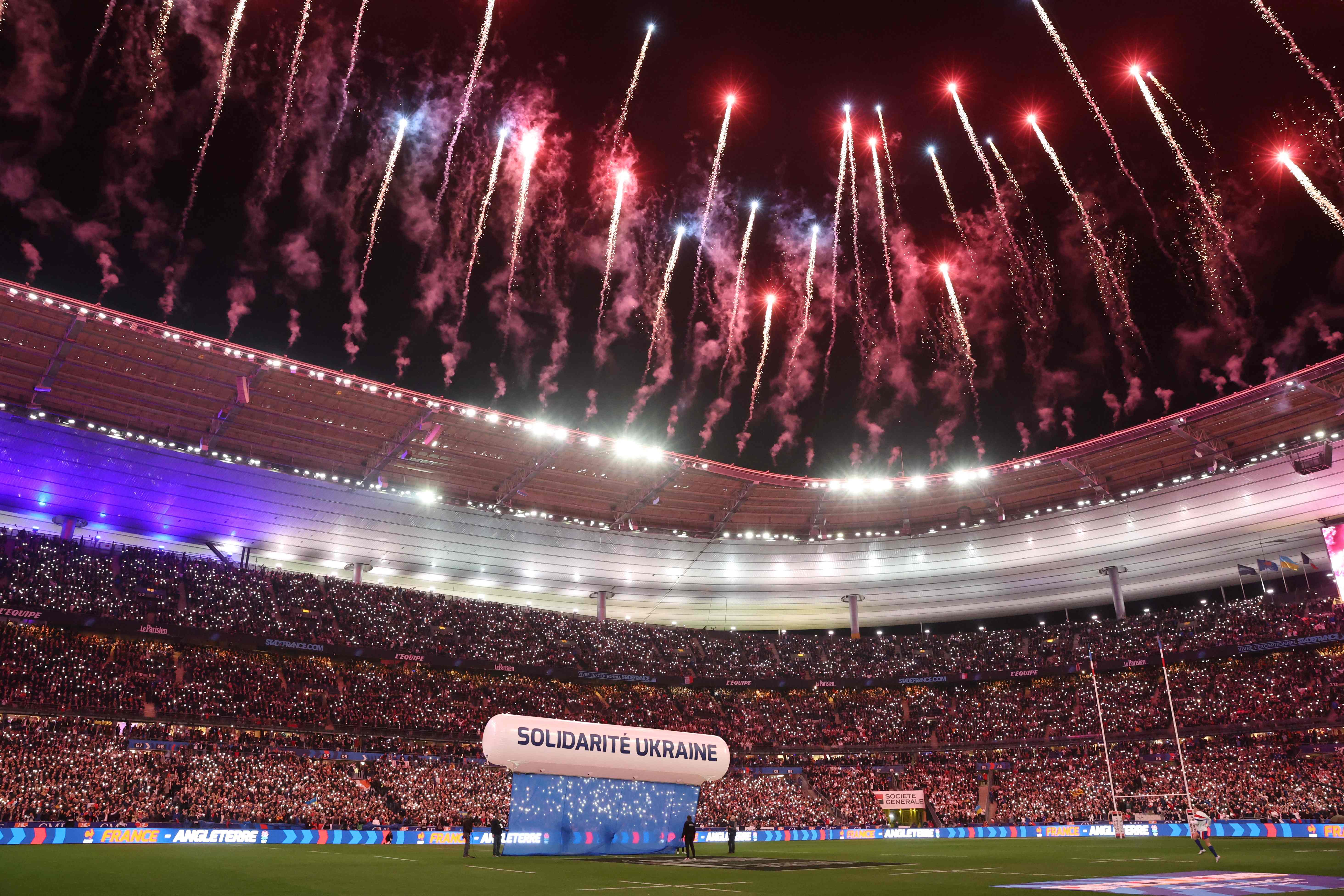The night French rugby gripped a city – and moved a nation
There is a clarity and unity to everything that France now do, on and off the field, writes Harry Latham-Coyle


The clock had ticked past 1am in Paris and still the queue for the metro stretched up the steps. French fans packed the carriages like cornichons, chanting deep into the night.
It had been an incredible, affirming evening inside the electric Stade de France as they swatted aside England 25-13, the DJ spinning the driving bass beats of 90s Eurodance – it was no occasion for chanson Française. The party atmosphere extended into parts of the normally decorous press box. Of the four “journalists” alongside me, not a single one took out a laptop or notebook during the 80 minutes.
You could almost forgive such celebrations on a night that a first grand slam in 12 years was seized. There is a clarity and unity to everything that France now do, on and off the field. Paris is a wonderfully diverse city true to the country, and that diversity is now being tapped better than ever before.
From the sport’s heartlands in the south to the party-goers in Paris on Saturday night, there is a real connection between this golden generation and their supporters – this game broke both attendance and television viewing records.
To keep up to speed with all the latest opinions and comment sign up to our free weekly Voices Dispatches newsletter by clicking here
It has come as part of an off-field realignment from French Rugby Federation (FFR) president Bernard Laporte. He has been a key figure, permitting head coach Fabien Galthie to create a large, first-rate coaching team drawn from wide sources and negotiating with the Top 14 to allow Galthie access to more players for longer throughout the tournament. The clubs, both amateur and professional, hold plenty of power in France, and are now on firmly on side. Galthie’s post-match remarks credited them for their role in the Six Nations win.
When victory was sealed, the players flocked towards the stands, leading the ground in the Icelandic thunder clap. Central to the celebrations was Cameron Woki, who was born in the Saint-Denis commune a couple of kilometres the Stade de France in 1998, just months after the country’s football team had lifted the World Cup at the newly constructed national stadium.
As they revelled, it was hard not to forecast that this formidable French rugby side may be destined for their own home triumph come the World Cup in 2023.
Yours,
Harry Latham-Coyle
Rugby writer



Join our commenting forum
Join thought-provoking conversations, follow other Independent readers and see their replies
Comments